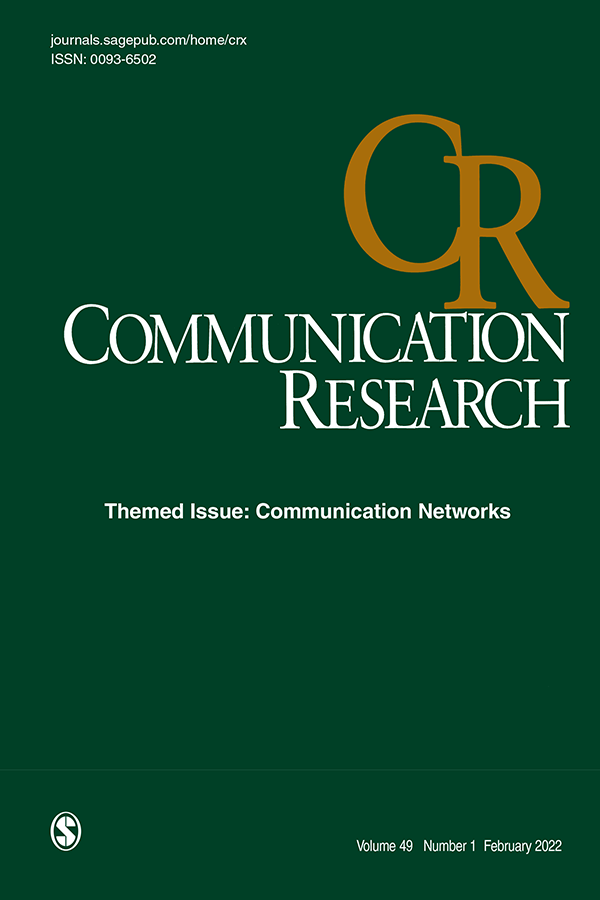The Role of Political Interest in the Relationships Between Privacy Concerns, Social Network Size, and Political Expression on Facebook, Twitter, and Instagram
IF 3.2
1区 文学
Q1 COMMUNICATION
引用次数: 0
Abstract
Studies on the predictors of using social media for political purposes reveal some unexpected complexities: users often disregard institutional privacy concerns to discuss politics online, and the size of social networks positively correlates with political expression on social media. Building on the privacy calculus theory, we explore how political interest interacts with privacy concerns and social network size when users decide to engage in political expression on social media. This study utilizes survey data from four countries (the US, UK, France, and Canada) collected in 2019 (政治利益在隐私问题、社交网络规模和Facebook、Twitter和Instagram上的政治表达之间的关系中的作用
对出于政治目的使用社交媒体的预测因素的研究揭示了一些意想不到的复杂性:用户经常不顾机构隐私问题在网上讨论政治,社交网络的规模与社交媒体上的政治表达呈正相关。在隐私演算理论的基础上,我们探讨了当用户决定在社交媒体上参与政治表达时,政治利益如何与隐私问题和社交网络规模相互作用。这项研究利用了2019年收集的来自四个国家(美国、英国、法国和加拿大)的调查数据(n = 6291),涵盖了三个社交媒体平台:Facebook、Instagram和Twitter。我们发现隐私问题与社交媒体上的表达呈负相关。较大的社交网络与政治表达呈正相关,尤其是在Twitter上。政治兴趣起着重要的调节作用:高度政治兴趣的用户不考虑隐私问题,并选择发布政治内容。这些发现在所有三个平台上都是一样的。
本文章由计算机程序翻译,如有差异,请以英文原文为准。
求助全文
约1分钟内获得全文
求助全文
来源期刊

Communication Research
COMMUNICATION-
CiteScore
17.10
自引率
0.00%
发文量
20
期刊介绍:
Empirical research in communication began in the 20th century, and there are more researchers pursuing answers to communication questions today than at any other time. The editorial goal of Communication Research is to offer a special opportunity for reflection and change in the new millennium. To qualify for publication, research should, first, be explicitly tied to some form of communication; second, be theoretically driven with results that inform theory; third, use the most rigorous empirical methods; and fourth, be directly linked to the most important problems and issues facing humankind. Critieria do not privilege any particular context; indeed, we believe that the key problems facing humankind occur in close relationships, groups, organiations, and cultures.
 求助内容:
求助内容: 应助结果提醒方式:
应助结果提醒方式:


